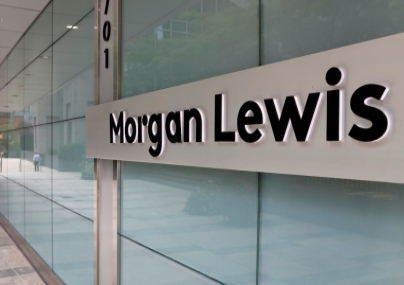By Lianting Tu
Singapore sovereign wealth fund GIC is making waves in the Asian debt markets with a series of unusually big investments in bonds from China.
According to market sources, in recent weeks, GIC has bought $700 million of unrated 4.7 percent bonds due 2019 from computer maker Lenovo, a $400 milllion 2019 private placement from property developer Vanke, and a HK$2 billion ($258 million) 3.2 percent 2020 note from Internet group Tencent Holdings.
Adding to the sudden increase in activity, the fund is said to have been behind the anchor order for the $350 million reopening of China Resources Land, as well as a big buyer in several other transactions.
The investments in unrated bonds and private placements mark a newly aggressive approach from GIC. It also contrasts with the liquidity-driven investment philosophy of other sovereign wealth funds, which typically prefer to invest taxpayers' money in high-rated and well-traded securities.
"A $700 million order for an unrated bond is a big thing for a sovereign wealth fund," said one banker.
Observers believe the shift in investment strategy marks a rebalancing of GIC's portfolio towards fixed-income assets and North Asia.
"GIC has been rebalancing into emerging markets in the last five years, particularly into China," said Enrico Soddu, an analyst at London-based Institutional Investor's Sovereign Wealth Center (SWC).
Based on SWC data, GIC's investments in North Asia grew to 13 percent of its portfolio last year from 8 percent in 2008. During the same period, it reduced its European exposure to 11 percent from 27 percent.
The latest deals, however, suggest GIC is allocating a greater portion of its portfolio to fixed income. GIC had 21 percent of its assets in fixed income at the end of 2013, up from an unusually low 17 percent in 2012, the SWC data showed. GIC does not publish a detailed breakdown of its investments.
"Before, GIC was just another bidder for public bond deals and was not a big player," said a source familiar with the matter. "Now, it is increasingly taking the anchor investor role."
Another source agreed, saying: "Lately, GIC has a shopping list of fixed-income names, with focus on China and tech paper."
The unusual approach, however, raises questions about GIC's concentration of exposure to Chinese fixed income.
"Given the diversification mandate, it's not typical for GIC to take concentrated positions on the equity side. Presumably, the same philosophy would apply to its fixed-income investments," said Joseph Cherian, practice professor of finance and director for the Centre of Asset Management Research and Investment at the National University of Singapore's Business School.
Under new management
A recent management reshuffle at GIC could explain the shift in strategy. Last year, several senior managers were replaced, while the fund reviewed its investment strategy at the same time.
"This [the large bets on Chinese bonds] is perhaps possible under their new investment framework that was established last year, where an investment board oversees its active investments and pays particular attention to large investments, but with careful risk management," Cherian said.
Among the senior management, five of the seven positions were filled with new staff, all of whom were promoted internally. While implementing the management change, the fund also adopted a new investment framework with a reference portfolio based on the model of the Canadian Pension Plan Investment Board.
The reference portfolio targets a 65 percent allocation in equities and 35 percent in fixed income, which reflects the Singapore Government's risk appetite, according to the GIC website. The portfolio also includes an active portfolio, which allows the fund to use opportunistic strategies.
As of the end of 2013, GIC had assets under management of around $315 billion, according to the SWC. So a 14 percent rebalancing means another $44 billion to invest in cash and bonds.
However, as it moves more heavily into fixed income, the GIC is not buying indiscriminately.
Vanke's five-year private placement pays a coupon of 4.5 percent, which is attractive relative to its 2018s currently yielding around 4 percent. Tencent's HK$2 billion bonds due 2020 were priced at par to yield 3.2 percent, higher than its $2 billion due 2019 currently yielding around 2.9 percent.
Lenovo's $1.5 billion bond, priced to yield 300bp over U.S. Treasuries on April 29, is one of the best-performing issues in the last month in Asia, according to traders. The paper was quoted at a spread of 221bp on June 4, or a cash price of 104, representing a 4.2 percent cash gain in the last five weeks and a $29 million paper profit for GIC.
Much of the rally, however, was due to the fact that portfolio managers heard the rumour that the GIC was the anchor on the deal.
The paper profit may be sizable, but GIC is not likely to flip the bonds for a quick gain.
"GIC is the buy-and-hold type of investor, and it is likely looking at long-term gains. It is unlikely that it will use its bulky positions to move the market," said a Singapore-based bond trader.
GIC declined to comment.


